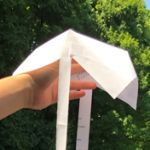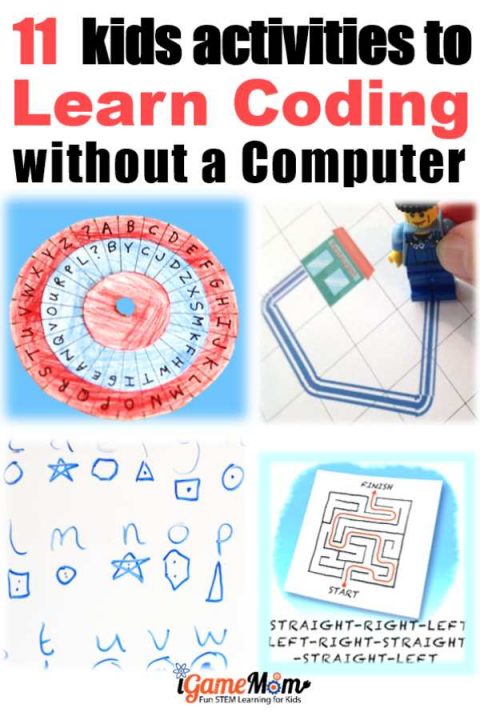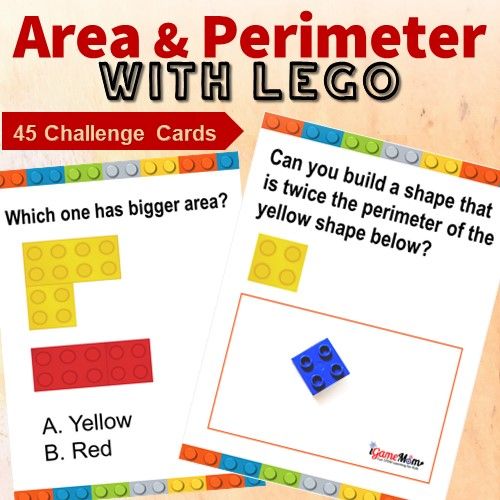Origami is a fun activity for kids of all ages. Today we share the easiest yet fun paper project – paper parachute. We used this project for our egg drop project with paper only, but the parachute can be used for many other activities too. Because it only requires paper, and some glue or tape, its low preparation, and few required materials make it an easy STEM project for kids of all ages. Depends on the kids’ age, parents and teachers can help kids understand the science of how parachutes work. Kids will learn air physics and flight dynamics.
Materials Needed to Make Paper Parachute:
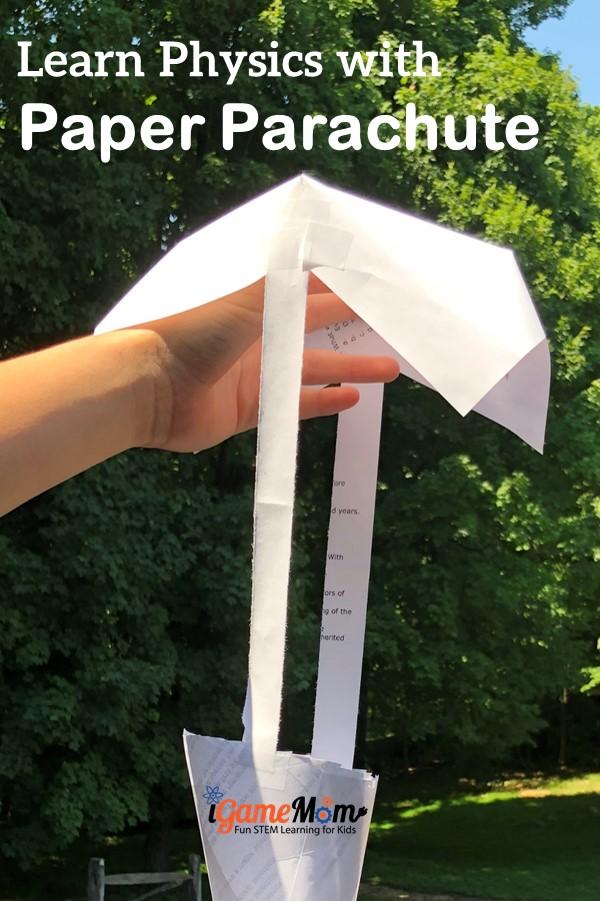
Paper of any size: we used regular 8×11 notepad paper, but you can use any paper you have. Of course, the bigger the size, the heavier weight the parachute can carry.
Glue or tape: to fix the shape of the parachute and to connect the strip with the top of the parachute.
Scissors: to cut the paper.
Step-by-step Guide to Make Paper Parachute:
1. Cut two strips of paper off the big piece of paper you have as shown below;

2. Fold the piece of paper as shown in the picture below;
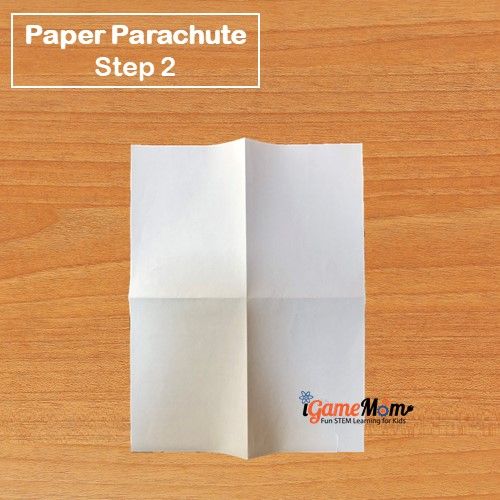
3. Mark points on the folded lines, making sure the marks are the equal distance from the edge of the paper;
4. Cut the paper along the lines from the edges of the paper to the marks;
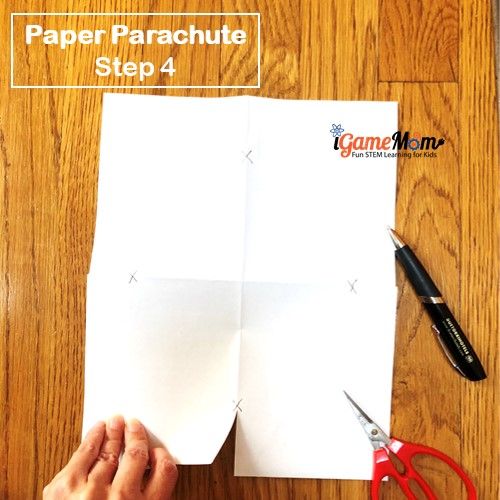
5. Move the 2 sides of the cut to overlap a little and then glue or tape the two sides. When done with all 4 cut lines, you should get the hat-shaped canopy for the parachute;

6. Glue or tape the two strips you cut in Step 1 on the opposite sides of the canopy;

7. Glue or tape the loose ends of the strips to a container that holds some weight. We made the parachute for our egg drop project, thus the shape of the container. But you can just use any shape or material as a container;

8. Add weight to the parachute
Science Concepts to Explore with the Paper Parachute:
Gravity: the force pulling the parachute down towards the ground. By definition, gravity is the force a planet draws objects towards its center. Since we are on earth, all objects are pulled down towards the center of the earth, so is the parachute or anything connected to the parachute.
Air Resistance: is also called “drag”. It is the force that slows down the parachute from falling down. Although we don’t “see” air, it doesn’t mean it is not there. Anything moves through the air is pushing the air out of the way. In the meantime, the air is pushing back against the moving object. When the parachute falling down, pushing the air out of its way, the air pushes up against the parachute’s canopy, slowing down the parachute’s falling.

Science Experiments to Conduct using the Paper Parachute:
One question kids can answer is: what factors will impact the speed of parachute falling?
Does the size of the canopy change the speed of the falling?
Does the weight the parachute carries change the speed of the falling?
Does the height of dropping change the speed of the falling?
Does wind change the speed of the falling?
With these questions, ask kids to design an experiment to answer each of the questions. Below you can find a free copy of the experiment design to answer the question “Does the weight the parachute carries change the speed of the falling?” To download it, simply put your email in the form below and you will receive the download link in your email.
For more science activity ideas, please visit:
500 Science Activities Kids Love for Each Month of the Year
Egg Drop Project Design with Straws
Off-Screen Activities for Kids to Learn Coding without Computers

